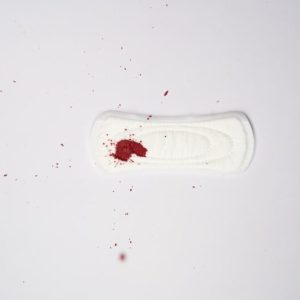When a couple has intercourse without prevention and the woman does not get pregnant after a year, it is necessary to check for infertility. After the clinical examination, a sperm test is taken from the man, and based on the test result, it is said that the man’s sperm status is normal or low, or that there is no sperm and infertility treatments are needed. The reasons for male infertility are known. There are many different reasons. Among them, we can mention hormonal and chromosomal disorders, systemic and general diseases, infections of the genital tract, obstruction of the sperm transport system, some injuries, complications of some surgeries and drugs, alcohol consumption, smoking, etc.
● Varicocele
Varicocele is a congenital disease and not acquired. In this disease, the veins around the testicles swell and cause sperm disorder. As you said, varicocele is a relatively common disease and 15% of men may suffer from it, but varicocele causes spermogram disorders and infertility in only 1-2% of patients. In other words, not all varicoceles cause infertility. According to the severity of varicocele, its involvement in infertility is different. The greater the intensity and disturbance caused by it, the greater its involvement in infertility.
Varicocele manifests itself in puberty and is sometimes asymptomatic and a person notices it during an incidental examination or later for infertility treatment. In some people, varicocele appears with symptoms such as heaviness and brief pain in the testicles on one or both sides.
● Varicocele and infertility
The effects of varicocele in infertility are divided into 2 groups; The long-term effects include the effect on testicular growth and the immediate effect includes the effect on sperm! The immediate effect is restored by surgery. If the varicocele is treated laparoscopically, there is a high chance that the infertility disorder will be corrected and the sperm will return to normal. In 50% of cases in severe varicocele, the treatment will bring back fertility to the full extent in the individual, but in some cases, normal fertility is not corrected.
If the varicocele is very severe and shows itself early, sometimes it causes the size of the testicle to decrease, and the treatment of the varicocele itself in this condition does not restore the health of the person completely, and its permanent effects are permanent. One of the complications of varicocele surgery is hydrocele, which means the accumulation of water around the testicle, but it is not common. It occurs in 5 to 7 percent of cases in people. Hydrocele is not a serious complication and in some cases it does not need treatment at all, but if it is severe, it can be removed with a simple surgery.
● Sperm disorders
Another reason for infertility is sperm disorders. One of the most common causes of infertility is sperm disorder or the absence of sperm. If there is no sperm in the test at all, there are 2 main reasons; First, sperm is produced but not transferred due to obstruction of the seminal tube. Second, sperm is not produced at all or it is so little that it does not come out in the semen. When sperm are produced but not transferred, it means that these people have blockage of the transfer ducts, which is one of the most common causes of infertility. In this group of people, despite the healthy testicles and the absence of hormonal disorders, there is no sperm in the semen. The reason for this issue can be the surgeries that took place in that area and caused the ducts to be closed. In most cases, this problem can be treated, but if there is a problem with sperm production, the treatment becomes difficult. Primary diseases or some diseases can cause a man not to produce sperm or its amount is small.
● Male fertility without sperm
Some of the diseases involved in reducing the amount of sperm can be treated and it can be removed with hormonal treatment or other treatments, but some cannot be treated and new assisted reproductive methods should be used to create fertility with the help of a small amount of sperm. did If there is no sperm at all, a person can use a donated embryo.
When the amount of sperm is not enough for normal pregnancy with all medical examinations and treatments and varicocele operation, assisted reproductive methods (art) are used. The simplest method is IUI. In this method, the sperm is placed inside the uterus. Another method is IVF, in which the sperm is taken and placed in the laboratory next to the egg. Another method is microinjection or ICS. In this method, sperm is injected into the egg. The chance of fertility in this method is higher than other methods and the number of sperm required is much less.
● What is the chance of success?
It can almost be said that except in rare cases, this method creates fertility and is successful up to 35.35%.





